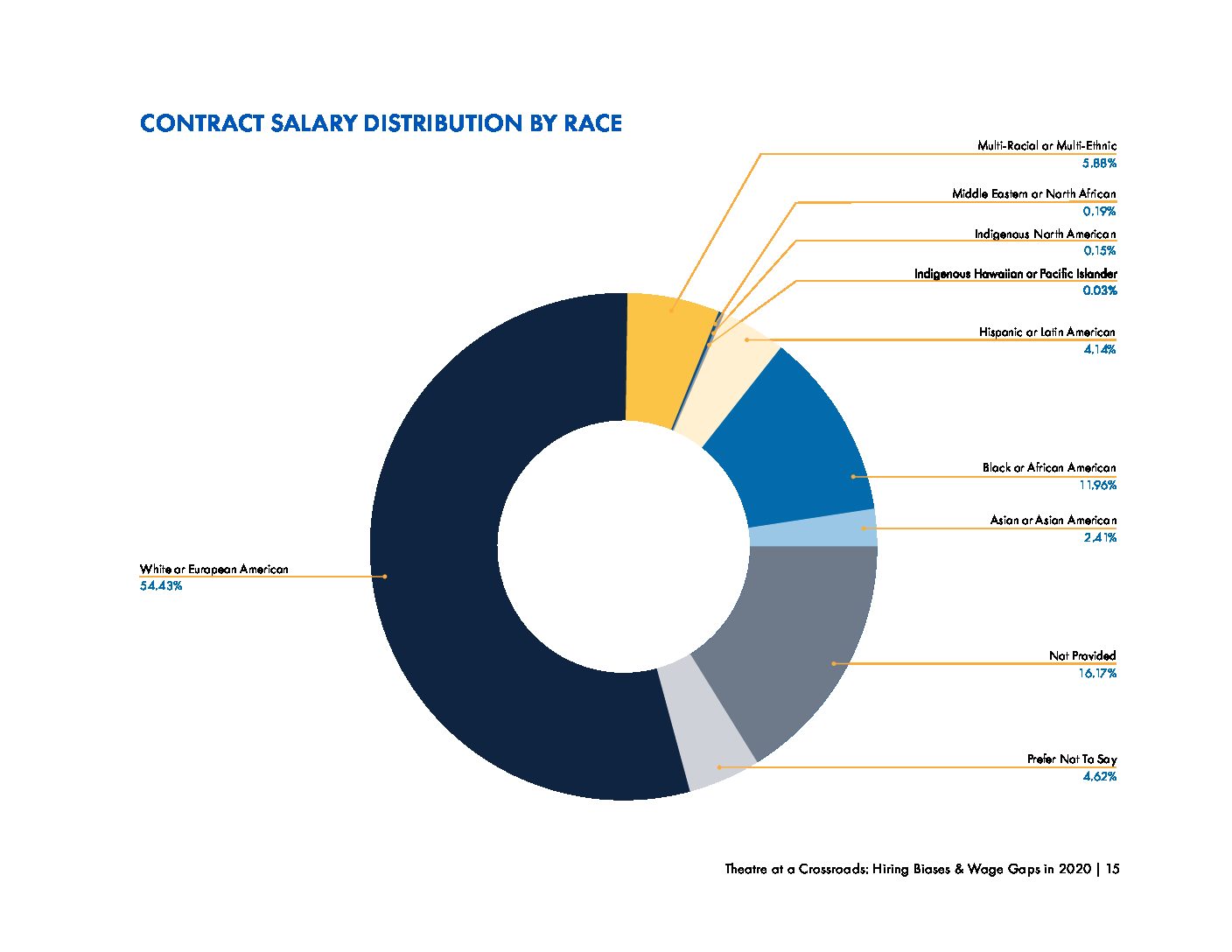NEW YORK CITY: The Actors’ Equity Association has released the 2020 diversity and inclusion hiring bias report, which tracks hiring demographics of its members for acting and stage management work, as well as how much they were paid. Despite some improvements, the data indicates that there are still noticeable disparities in opportunity and pay in the theatre industry nationwide.
“As we found in the last two iterations of this report,” wrote Equity’s diversity and inclusion strategist Bliss Griffin in her introduction to the report, “employers are still not hiring and compensating all Equity members—stage actors and stage managers—equitably. People of color, women, people with disabilities, transgender people—all remain less likely to find theatrical work than members who are (or appear to be) white, male, cisgender, and without apparent disability. And when they are hired, they are likely to earn less than other members doing the same and similar jobs.” Though she acknowledged some improvements, Griffin called the rate of change “glacial” and said that progress has been “marginal at best.”
Though shutdowns during to the COVID-19 pandemic resulted in historically low theatre employment overall in 2020, the data still reveal significant trends. Some key findings from the report include: Though men and women were employed in roughly equal numbers, men tended to earn more than women for the same amount of work, and both men and women tended to earn more than nonbinary members. While the the percentage of contracts going to members of color increased from 2016-2019 to 2020 from 21.50 percent to 24.77 percent, members of color nationally earned an average of 91.80 percent of what white members made per week. The majority of stage manager positions went to white workers, with stark pay gaps for stage managers along both race and gender lines. Equity members who identified as disabled, transgender, or over 65 all tended to earn less than the industry average.
“2020 was obviously an outlier year; our industry was among the hardest hit by COVID, and work weeks were nowhere close to the norm,” said AEA president Kate Shindle in a statement. “But 2020 was also the year in which theatrical leaders across the country loudly and collectively promised to do better, so we felt it was important to continue our work tracking hiring bias. We are disappointed by the realities of the data: While there was some incremental progress here and there in 2020, the theatre fell far short of fulfilling its promises of diverse and inclusive hiring. Equity has made it a top priority to combat inequality in the industry, but we cannot do this work alone. We call on everyone who makes hiring and pay decisions in the theatre to demonstrate their commitment through their actions as well as their words.”
The Actors’ Equity Association is the U.S. labor union representing more than 51,000 professional actors and stage managers in live theatre. Since 1913, Equity has supported careers in the theatre industry by providing benefits, improving working conditions, and negotiating wages for its members.


